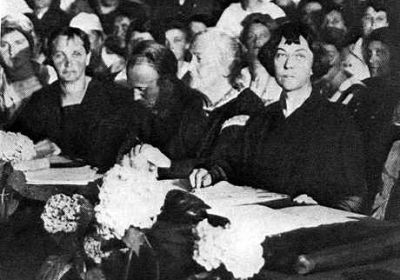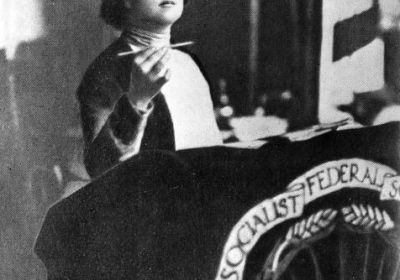Born in 1872 to a wealthy land-owning family, Alexandra Kollontai was raised in both Russia and Finland, acquiring an early fluency in languages which served her well in her later revolutionary work. She began her political work in 1894, when she was a new mother, by teaching evening classes for workers in St Petersburg.
Through that activity she was drawn into public and clandestine work with the Political Red Cross, an organisation set up to help political prisoners. In 1895, she read August Bebel’s Woman and Socialism, which had a major influence on her ideas about the emancipation of women.


